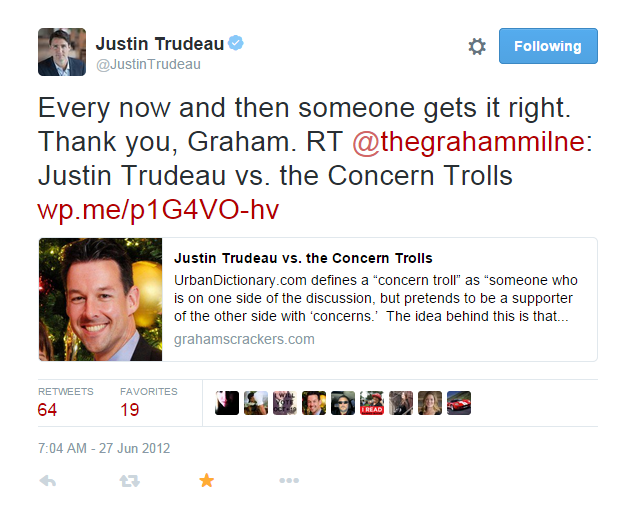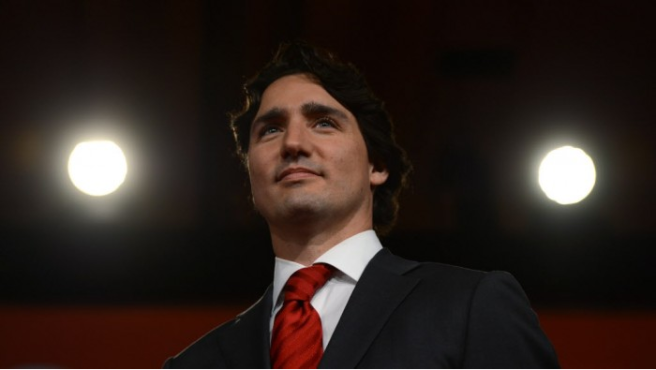
There’s a new cabal of supervillains in town, haven’t you heard, and you won’t find them clad in garish Technicolor-hued costumes and cackling about plans for ruling the galaxy, but you might spot them at black-tie parties sipping champagne between lips perpetually curled into a superior smirk, shaking their heads at the calamity that has temporarily befallen their carefully-laid Machiavellian schemes for crafting a horrific utopia of universal health care.
That’s right: it’s those dastardly elite.
The buzzword for the evil well-heeled liberal left is at the forefront of the discussion that lingers in the wake of the egregious phenomenon that is Donald Trump, with his election described as a rebuke to the ruling elite, and with others just a hair north of the border clamoring to pick up his poisoned torch, as if he were the vanguard of a burgeoning movement that seeks as its endgame the imprisonment of all lovers of Puccini and Dostoyevsky.
The word “elite,” which in its dictionary definition means the best of something, is in the political arena an archetype of snobbery and disdain, a pejorative concocting images of a haughty Illuminati-like cabal whose greatest crime is that they just don’t get what it’s like to be a real, average, hard-workin’ sort of folk. This is despite the fact that those who hurl it with the most frequency and venom are themselves usually silk-suited, impeccably pedigreed, long-serving elected officials or heavily pancaked cable news talking heads who haven’t had to suffer the indignity of a working-class job since the paper route their corporate partner lawyer father made them get back in the 70’s – you know, elites.
Ironically, absolutely nowhere else is elite a term greeted with contempt; rather, it represents, as the word is meant to, the highest, most desirable caliber of person. We read books, go to movies and listen to music made by elite artists, we want our kids to be educated by elite teachers, we want our health monitored by elite doctors, we want our houses and cars maintained by elite trades. Businesses both big and small boast about how they only want elite people working for them, and that in approaching them as a customer you will receive only elite treatment. When you go out to eat you want to be waited on by elite staff (even the poor kid at Mickey D’s had better be bright and cheerful and fast lest you raise hell with their manager), when you go on vacation you want elite white glove service from start to finish.
And of course, we only want elite athletes playing for our favorite professional sports teams. I’ve been following the MLB off-season wheelings and dealings, and the Blue Jays’ Edwin Encarnacion remains unsigned after turning down an $80-million, four-year deal from Toronto – a deal which, if you do the math, would result in him making about $150K for every single game he plays – and you see fans who would take four years to earn what he’ll get in one day begging the ownership to please cough up even more to get his name on the dotted line. No one is saying to please give up on Edwin and sign a busload of mediocrities in his stead; no one wants to watch that team boot the ball about the field.
Simply put, in every other aspect of our lives we not only desire the elite, we expect it; and yet, when it comes to politics, we’re suddenly terrified of them, picturing them as cloud-dwelling aristocrats trickling a steady stream of urine down onto the contemptible masses in lieu of rain. But apply the same formula to a restaurant and ask yourself the question: am I going to turn down this perfect medium rare sirloin grilled by the elite, Parisian-schooled chef in favor of an inedible hockey puck burnt by a bumbling hack because he’s the kind of guy who really gets me?
Not for a second.
Fear of the elite as the government is an artificial construction manipulated to win votes by politicians who are themselves of the same class they claim outwardly to despise. George W. Bush, who ran as an outsider and the politician voters claimed they were most likely to want “to have a beer with” (in my mind the single stupidest qualifier for a candidate for office ever devised – I don’t want to have a beer with you, I want you to be working on growing the economy, fixing poverty, restoring the environment and keeping us out of wars), was the Yale-educated son of a long line of privilege. Rob Ford was a working-class hero despite having inherited his family’s million-dollar label business. Donald Trump, it was oft lamented by Clinton campaign personnel, literally shat in gold-plated toilets aboard his private jet and somehow convinced the out-of-work laborers in the Rust Belt states that he was one of them. The hatred for the political elite – framed as single-handedly responsible for every ill that has befallen every human being ever, and they may have taken the Lindbergh Baby as well – is so strong that a disturbing number of voters are quite happy to overlook the glaring hypocrisy of anyone who steps up to affirm that anger in digestible, repeatable soundbites.
As Canada’s federal opposition Conservative Party prepares to select its new leader, the 14 pretenders to Stephen Harper’s iron throne are likewise bleating about sticking it to the elites a la Trump, despite the fact that all save one are veteran former federal cabinet ministers and most have degrees from prestigious educational institutions and long track records in the upper echelons of the corporate sphere predating their service in government. You simply do not get to mount a campaign for the leadership of a national political party as a commonplace rube, and trying to pretend that you have suddenly become the standard bearer for people who haven’t the first clue what the letters in all the degrees after your last name stand for, people who you’d never condescend to speak to for a half-second if your public image didn’t require it, is the highest of farce – however, as Trump proved, sadly, it doesn’t mean you won’t still win.
As a word, elite needs to be reclaimed from those who are redefining it into a handy slur directed at the opposite side of the aisle. Elite means the smartest and the best, something everyone should aspire to, and even if admitting it publicly is somehow seen as immodest, no one is sitting around thinking “I really hope to be the most numbingly bland, average, unremarkable, mediocre, inadequate and woefully subpar ____________ as it is possible in this life to be.” No, we won’t all get to be President or Prime Minister or otherwise world-renowned, but we can still do the best we can with the life we have, which, surprise of surprises, requires a great deal of hard work, always lauded or used as the first line of defense by the thin-skinned in Internet comment section arguments: “I’m not one of those elites, I’ve worked hard for everything I have!” – congratulations, that makes you elite, and there aren’t enough Make America Great Again stickers to plaster on your rear bumper to change it.
And while many might rue the notion of being governed by the elite – in the manner as it is defined by pundits – like the business looking for that ideal hire, when we vote we truly do want the best person for the job. Even the 62 million people who voted for Donald Trump did not really think he was going to suck at being President. So can we please, for the love of the English language, put the misuse of elite to bed and stop acting like being really good at something is a failing and that ignorance in the ways of governing is in any way a desirable virtue? Because you can’t be sanctimonious about proudly electing idiots and then complain with any legitimacy when everything goes to pot, which it will. Everyone who is trying to win your vote by making an enemy of elites knows this. They simply don’t care, and they are faking that they understand your struggles in order to achieve an office that will allow them to screw you with impunity, to the benefit of their wallets, not yours. Elite is being informed and thoughtful enough to be able to recognize these purveyors of snake oil for what they are. Given the alternative, which would you choose?








